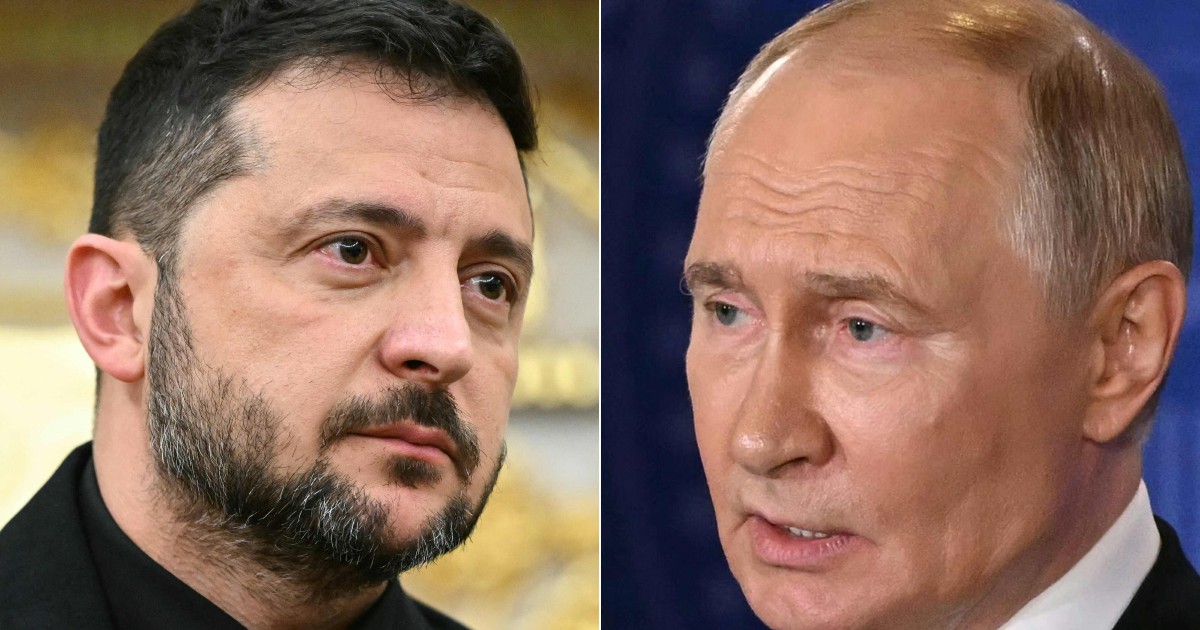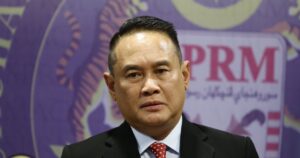RUSSIAN and Ukrainian presidents Vladimir Putin and Volodymyr Zelenskyy looked set for a peace summit after fast-moving talks on Monday between United States President Donald Trump and European leaders that focused on the key issue of long-term security guarantees for Kyiv.
Hopes of a breakthrough rose after Trump said he had spoken by phone with Putin — whom he met in Alaska last week — following a “very good” meeting with the Europeans and Zelenskyy at the White House.
It would be the first meeting between the Russian and Ukrainian leaders since Moscow’s invasion nearly 3½ years ago, and comes as Trump tries to live up to his promise to quickly end the war.
Trump, 79, wrote on his Truth Social network that “everyone is very happy about the possibility of PEACE for Russia/Ukraine”.
“At the conclusion of the meetings, I called President Putin, and began the arrangements for a meeting, at a location to be determined, between President Putin and President Zelenskyy,” said Trump.
Trump said he would then hold a three-way summit with the Ukrainian and Russian leaders.
German Chancellor Friedrich Merz said Putin had agreed to the bilateral meeting within two weeks, but there was no confirmation of a date or location.
Zelenskyy confirmed to reporters outside the White House he was “ready” for a bilateral with bitter foe Putin, whose invasion of Ukraine has led to tens of thousands of deaths.
In Moscow, a Kremlin aide said that Putin was open to the “idea” of direct talks with Ukraine.
The Ukraine war has ground to a virtual stalemate despite a few recent Russian advances, with the Trump and Putin summit failing to produce any ceasefire.
Zelenskyy then rushed to the White House to meet with Trump after the US president increasingly pushed the Ukrainian leader to make concessions to Russia.
The leaders of Britain, France, Germany, Italy, Finland, the European Commission and North Atlantic Treaty Organisation (Nato) then announced that they would be coming too, in a pointed show of support.
Zelenskyy also met one-on-one in the Oval Office with Trump in their first encounter in the heart of the US presidency since their acrimonious blow-up there in February.
The Ukrainian president said the meeting was their “best” yet, with little of the tensions that erupted when Trump and Vice-President JD Vance berated him in front of TV cameras for not being “grateful” for US support.
Trump even complimented Zelenskyy on his black jacket, after the Ukrainian was criticised by right-wing media because he failed to change his trademark war-leader’s outfit for a suit during the February visit.
The US president, meanwhile, said he had discussed security guarantees for Ukraine, adding that Putin had agreed to them despite ruling out Kyiv’s long-held dream of joining the Nato alliance.
Trump said the guarantees “would be provided by the various European countries, with a coordination with the United States of America”.
Nato chief Mark Rutte said at the White House it was a “very successful meeting” with “the president really breaking the deadlock”.
“Today was really about security guarantees, the US getting more involved there, and all the details to be hammered out over the coming days,” he said.
The Financial Times said Ukraine had undertaken to buy US$100 billion of US weapons financed by Europe in return for US guarantees for its security.
Zelenskyy later spoke to reporters about a US$90 billion package, and said Ukraine and its allies would formalise the terms of the security guarantees within 10 days.
The presence of the European leaders, however, also underscored continuing nervousness about whether Trump will pivot towards Putin as he has on a number of occasions.
French President Emmanuel Macron called on Monday for stepping up sanctions against Russia if Putin did not move forward on peace with Ukraine.
Finnish President Alex Stubb said Putin was not “to be trusted”.
Germany’s Merz said Ukraine should not be forced to surrender its Donbas region to Russia in talks.
“The Russian demand that Kyiv give up the free parts of Donbas corresponds, to put it bluntly, to a proposal for the US to have to give up Florida,” said Merz.
* The writer is from AFP
© New Straits Times Press (M) Bhd






